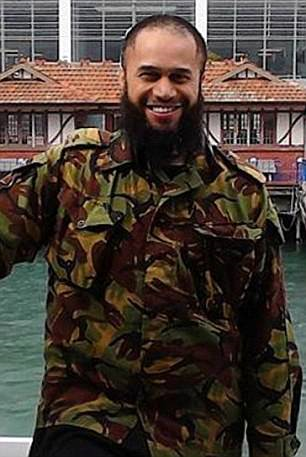What a waste of time this has been! One year of thousands of hours taxpayer funded lunches and the govt say Tarrant acted alone! Local Islamists are laughing all the way to the bank!

Nearly 2000 people were reported to police as potential risks to public safety in the six months after the Christchurch terror attack.
Operation Whakahaumanu was designed to reassure New Zealanders after the March 15 shooting at two mosques that left 51 people dead and dozens injured.
Police used the operation to raise awareness through increased visibility on the streets, and visits to thousands of schools, religious places and businesses.
Stuff earlier revealed the operation included a substantial intelligence phase, in which police monitored hundreds of people, including white supremacists, Muslim converts and people left disgruntled by the Christchurch terror attack.
Dr Chris Wilson, an expert in violent conflict and terrorism, said two key things happened after a terror attack – some people became concerned about what others were saying, while some felt inspired by the event.
“For the vast majority of us it repulses us and it makes you want to look after the Muslim community, but for some people who are so inclined it actually kind of excites them and inspires them and makes them more vocal whereas before they would’ve thought ‘I’m not allowed to say that sort of stuff’.”
Stuff complained to the Office of the Ombudsman after police declined to release how many people from each police district made the list of persons of interest.
Police director of national intelligence Dan Wildy has since released the information to Stuff, saying the circumstances of protecting the information has changed.
The information reveals 1912 people had been entered into police’s Real Time Intelligence on Demand (RIOD) dataset as of September 1, 2019.
Of those, 547 were in Canterbury, 305 in the Southern district, 180 in Wellington, 115 in Auckland City, and 180 in the Central district.
The figures provided no context on the nature, seriousness or credibility of the information.
Wildy said many of the leads were quickly evaluated and resolved by local officers.
Police were unable to provide further information for “operational reasons”.
The figures exclude information relating to people overseas and unidentifiable leads.
National prevention manager Superintendent Eric Tibbott said the focus of the operation was not on arrests, but on engaging with the public and encouraging members of the community to advise police about any concerns they had.
“Enforcement action was taken as a last resort,” he said.
Operation Whakahaumanu had since been folded into police’s “everyday activity”.
Strategic analyst and former Pentagon official Dr Paul Buchanan said an upsurge in people reporting suspicious behaviour was expected after a terror attack.
“The reporting that happens in the aftermath of these sorts of incidents goes from the frivolous to the deadly serious so the broader picture is not surprising.”
He estimated only 1 per cent of the reports to police would have been “serious leads”.

